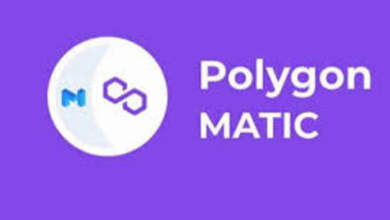For centuries, the traditional financial system has been centralized, relying on banks and governments to record and verify all transactions. This has led to a lack of transparency and high transaction costs.
However, with the introduction of blockchain technology, we now have a decentralized approach to managing transactions, which eliminates the need for intermediaries and provides greater transparency and security.
If you’re familiar with the world of cryptocurrency, then you’re probably aware of Ethereum – a blockchain-based platform that enables the creation of decentralized applications, or DApps. Through Ethereum’s smart contracts, developers can create secure and transparent DApps that can be used in a variety of industries, from finance to healthcare.
The potential of Ethereum and DApps is vast, and as blockchain technology continues to evolve, we can expect to see even more innovative use cases in the near future.
Here, we will be considering what smart contracts and decentralized apps are, so you can have a full understanding of how these are bringing us closer to a new world of finance.
First, What Are Smart Contracts?
A smart contract is a self-executing digital contract that automatically enforces the terms of an agreement between two or more parties. It is a computer program that runs on the blockchain and can be programmed to trigger specific actions based on predetermined conditions.
Smart contracts eliminate the need for intermediaries. It also reduces transaction costs while also increasing the efficiency of processes.
How Do Smart Contracts Work?
Smart contracts are written in a programming language called Solidity, which is specifically designed for Ethereum. When a smart contract is created, it is deployed on the Ethereum blockchain, and a unique address is assigned to it.
Once the smart contract is deployed, it can be interacted with by other applications and contracts on the network.
Smart contracts work by using a series of if-then statements, which are known as conditional statements. For example, if a specific condition is met, then the smart contract will automatically execute a predetermined action. These actions can include transferring funds, updating data on the blockchain, or triggering other smart contracts.
What Are Decentralized Applications (DApps)?
Now that we know what smart contracts are and how they work, let’s take a look at decentralized apps too. A decentralized application, or DApp, is a computer program that runs on a decentralized network, such as Ethereum.
These applications are built using smart contracts, and they can be used for a variety of purposes. Some of them include as peer-to-peer transactions, digital identity verification, and voting systems.
DApps are built using a combination of front-end and back-end programming languages, such as HTML, CSS, and JavaScript. The front-end of a DApp is the user interface, which allows users to interact with the application. The back-end, on the other hand, is the smart contract, which runs on the Ethereum network and executes the code.
DApps cannot work independent of smart contracts. That’s what they use to automate the execution of specific tasks. For example, a DApp that allows users to trade digital assets would use a smart contract to execute trades automatically based on predetermined conditions.
Advantages of Smart Contracts and DApps on Ethereum
Smart contracts and DApps on Ethereum offer several advantages over traditional centralized systems, including:
- Transparency: Transactions on the Ethereum network are transparent and publicly visible.
- Security: Smart contracts on Ethereum are tamper-proof. That means they cannot be easily altered by a third party. This is one of the things that make them secure while eliminating the risk of fraud.
- Efficiency: Smart contracts and DApps on Ethereum are self-executing, which reduces the need for intermediaries and increases execution speed.
- Accessibility: Ethereum is a decentralized network. This means that anyone can access it and participate in transactions.
What Are Some Use Cases of DApps?
DApps have a wide range of uses in various industries, where they provide secure and transparent solutions to various problems. Here are some of the most popular uses of DApps.
1: Financial transactions
This is probably the most pronounced use of decentralized apps. They are being used for financial transactions such as payments, lending, and insurance. With the help of smart contracts, DApps can automate financial transactions and reduce the need for intermediaries, which can lead to faster and cheaper transactions.
2: Supply chain management
DApps can also be used in supply chain management to track the movement of goods and ensure their authenticity. These applications can provide a transparent and tamper-proof record of the entire supply chain process. It is a revolutionary way of reducing the risk of fraud and increasing transparency in sully chain.
3: Voting systems
DApps also have a footprint as being used for online voting and decision-making processes. They utilize the transparency and security of blockchain technology to provide a fair and secure way for individuals to vote and make decisions. Voting is now possible without the need for intermediaries or central authorities.
4: Identity verification
Yes, decentralized apps on Ethereum can also be used for identity verification and authentication. This goes a long way toward reducing the risk of identity theft and fraud. The tamper-proof digital identity created by DApps can be used for various purposes, such as opening bank accounts, applying for loans, and accessing online services.
5: Healthcare industry
Perhaps, you have never thought of this. Decentralized apps can also be used in the healthcare industry to securely manage and transfer patient data. These apps use smart contracts and decentralized networks.
That makes them perfect for providing a secure and efficient way for healthcare providers to manage patient data. At the same time, they reduce the risk of errors and improve the accuracy of diagnoses.
Challenges and Limitations of Smart Contracts and DApps on Ethereum
While smart contracts and DApps on Ethereum offer several advantages, there are also several challenges and limitations that need to be addressed. These include:
- Scalability: The Ethereum network has a limited capacity to process transactions, which can result in delays and increased transaction fees during periods of high demand. Although the coming Ethereum PoW to PoS switch is aimed at addressing that, it is still a major challenge with the Ethereum network today.
- Security: While smart contracts on Ethereum are tamper-proof, they are still vulnerable to bugs and vulnerabilities in the code, which can be exploited by attackers.
- Adoption: Smart contracts and DApps on Ethereum are still in their early stages of development, which means that adoption is limited and there is a lack of mainstream awareness.









